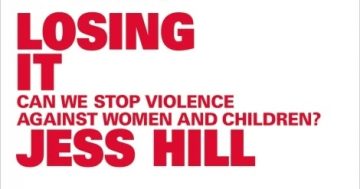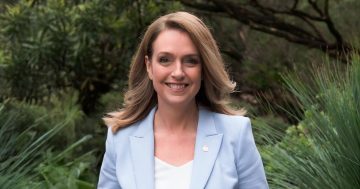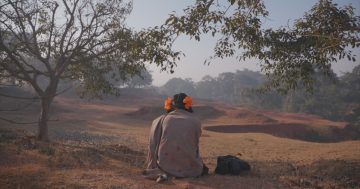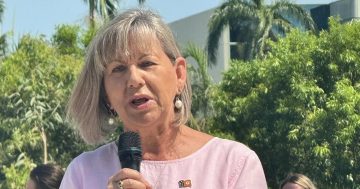Reviewed by Rama Gaind.
By Annabel Crabb, Quarterly Essay/Black Inc., $22.99.
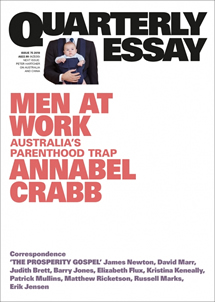 Walkley Award-winning journalist and author asks some pertinent questions and makes realistic observations, which are long overdue.
Walkley Award-winning journalist and author asks some pertinent questions and makes realistic observations, which are long overdue.
Annabel Crabb wants to know: “half a century of modern feminism has changed the way women conduct their lives. But men are still in their old box?”
In the past half-century, women have revolutionised the way they work and live. But men’s lives have changed remarkably little. Why?
“Women’s surge into the workplace has been profound over the last century. But it hasn’t been matched by movement in the other direction: while the entrances have been opened to women, the exits are still significantly blocked to men. And if women have benefited from the sentiment that ‘girls can do anything,’ then don’t we similarly owe it to the fathers, mothers and children of the future to ensure that ‘boys can do anything’ means everything from home to work?”
Crabb asks why haven’t men’s lives changed and why do so few take parental leave?
She confronts the way male leaders are treated compared to their female counterparts.
When New Zealand’s Prime Minister Jacinda Ardern announced her pregnancy, the headlines raced around the world. However, when Australian Prime Minister Scott Morrison and Treasurer Josh Frydenberg became the first political duo since the 1970s to take on the roles while bringing up young children, this detail passed largely without notice.
Crabb asks why haven’t men’s lives changed and why do so few take parental leave?
QE75, a slick politics of life management, deploys political observation, workplace research and quality wit to examine gender equity.
“It’s an absolutely intriguing demonstration of what we expect from fathers that the question of work-family balance – for a parent with the biggest job in the country – doesn’t even come up,” Crabb writes.
“As much as juggling life is not easy, I think it is a tragedy – a proper tragedy – that men are encouraged to miss out on it, every day. It feels like a universe of experience from which fathers are disproportionately excluded, and that’s a sad thing.”
This essay is not a lengthy whine about how life is tough for Jacinda Ardern and easy for Scott Morrison. Crabb would never dispute that, but in her latest work she argues gender equity cannot be achieved “until men are as free to leave the workplace (when their lives demand it) as women are to enter it”.


